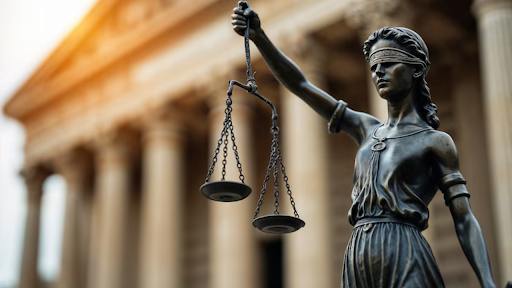When a conviction feels like the end of the road, it’s important to remember that there are still options for justice and fairness. The legal system provides avenues for individuals to seek post-conviction relief, but navigating these paths requires expertise and precision. This is where a post-conviction relief lawyer comes into play.
These professionals specialize in uncovering errors, presenting new evidence, and advocating for a second chance. Let’s explore how skilled legal support can help you turn the page and secure a brighter future.
Knowing More About Post-Conviction Relief
Post-conviction relief isn’t just about challenging a verdict—it’s about addressing mistakes or injustices that may have occurred during the trial. There are several grounds to explore, from ineffective legal representation to newly discovered evidence. However, these processes are complex and require someone who knows how to navigate them effectively.
Common reasons for seeking relief:
- Ineffective assistance of counsel during the trial.
- Newly discovered evidence that could change the outcome.
- Violations of constitutional rights, such as due process.
Identifying Errors That Matter
One of the first tasks of a skilled attorney is reviewing the trial record to identify potential issues. These might include procedural mistakes, misinterpretations of the law, or errors in jury instructions. For someone unfamiliar with legal procedures, spotting these errors can feel overwhelming.
What they look for:
- Misapplications of the law by the trial judge.
- Evidence that was improperly admitted or excluded.
- Jury misconduct or bias during deliberations.
Building a Strong Case with New Evidence
Newly discovered evidence can be a game-changer in post-conviction cases. Whether it’s DNA testing, witness recantations, or exonerating documents, presenting this evidence requires careful preparation. A skilled attorney knows how to gather, analyze, and present this information in a way that supports your case.
How they use new evidence:
- Filing motions to introduce DNA or forensic testing results.
- Highlighting inconsistencies in witness testimonies.
- Demonstrating how new evidence undermines the original verdict.
Navigating Habeas Corpus Petitions
Habeas corpus petitions are a powerful tool for challenging unlawful imprisonment. These petitions argue that a person’s detention violates their constitutional rights. However, filing a successful habeas corpus petition requires a deep understanding of legal principles and procedural rules.
Key aspects of habeas corpus petitions:
- Arguing violations of due process or fair trial rights.
- Presenting evidence of ineffective assistance of counsel.
- Meeting strict deadlines and procedural requirements.
Advocating for Sentencing Modifications
Sometimes, the issue isn’t the conviction itself but the severity of the sentence. Post-conviction attorneys can file motions to modify sentences based on factors like excessive punishment, changes in sentencing laws, or mitigating circumstances.
Reasons for seeking sentencing relief:
- Sentences that exceed legal guidelines.
- Changes in laws that retroactively reduce penalties.
- New evidence that highlights mitigating factors.
Steering Clear of Costly Errors
The post-conviction process is governed by strict rules and deadlines. Missing a filing deadline, failing to follow formatting guidelines, or submitting incomplete documents can jeopardize your case. Experienced attorneys excel at managing these details with precision, ensuring compliance at every step.
How do they do it:
- Keeping detailed calendars to meet all critical deadlines.
- Double-checking documents for technical accuracy.
- Staying updated on changes to procedural rules.
Exploring Alternative Paths to Justice
If one avenue doesn’t succeed, post-conviction attorneys can explore other options, such as appeals, clemency petitions, or executive pardons. Each path has its own set of requirements and challenges, making professional guidance essential.
Other options they might pursue:
- Filing appeals to higher courts for further review.
- Seeking clemency from the governor or president.
- Applying for executive pardons to clear your record.
Building Trust Through Clear Communication
While attorneys handle the legal strategy, keeping clients informed is crucial. Clear communication helps you understand the process, manage expectations, and make confident decisions about your case.
How they foster trust:
- Providing regular updates on case progress.
- Breaking down complex legal terms into plain language.
- Discussing risks, potential outcomes, and next steps openly.
Final Thoughts
Securing a second chance after a conviction may seem daunting, but with the right support, it’s possible. A skilled post-conviction relief lawyer brings the expertise needed to identify errors, present new evidence, and navigate the complexities of the legal system. Whether you’re seeking to overturn a wrongful conviction or modify an unfair sentence, partnering with an experienced attorney is a smart move.
